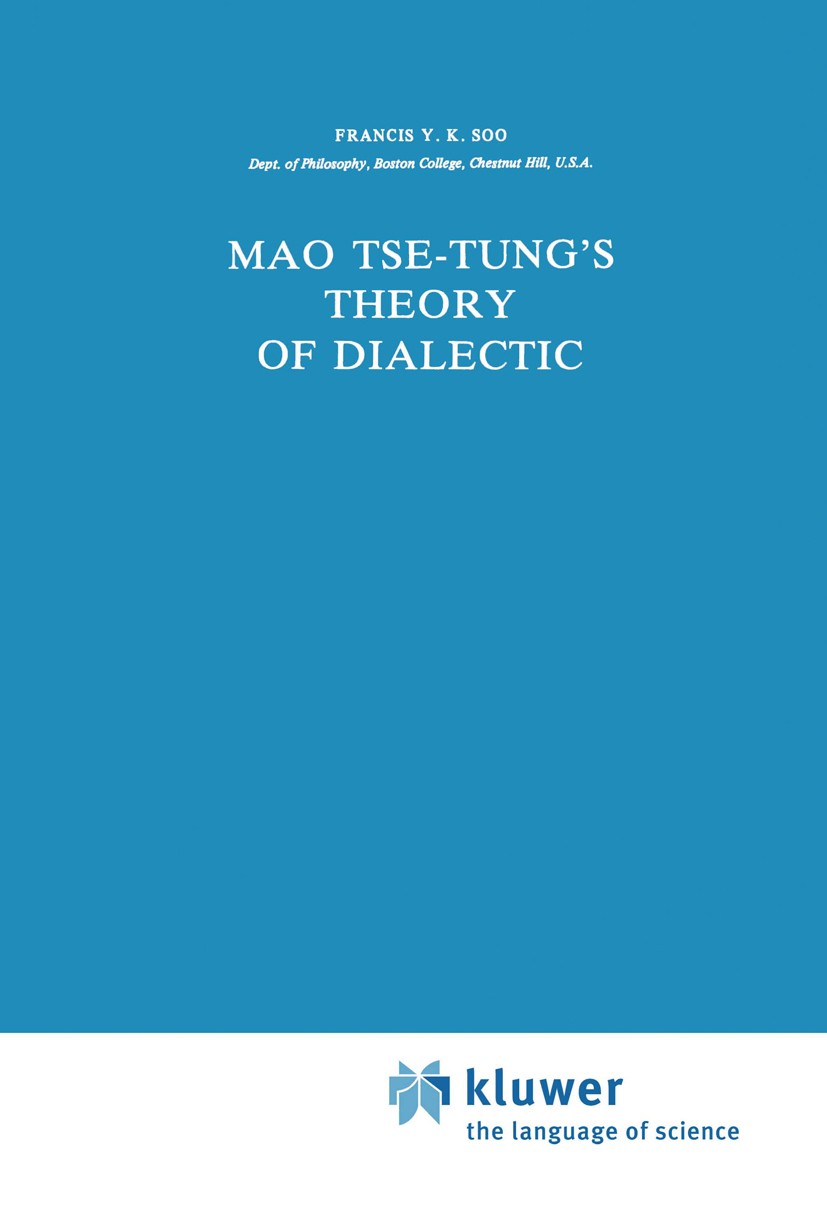| 书目名称 | Mao Tse-Tung’s Theory of Dialectic | | 编辑 | Francis Y. K. Soo | | 视频video | http://file.papertrans.cn/624/623708/623708.mp4 | | 丛书名称 | Sovietica | | 图书封面 |  | | 描述 | The year 1979 ushered in a new phase in China‘s long and continuous revolu tion. Currently, this new phase is being symbolically referred to, by the Chinese leaders themselves, as the ‘New Long March‘ (a continuation of the legendary and historical Long March) in terms of modernization, which comprises the Four Modernizations: Agriculture, Industry, Science and Technology, and Military Defense. Such an all-encompassing attempt at modernization may appear, to some at least, to be something new, or may indicate a radical shift in her policy. But upon closer examination, this decision seems only to reflect an historical continuity in terms of the two major long-term goals of the Chinese Revolution: ‘national independence‘ and ‘modernization‘ (or ‘industrialization‘). The former would make China strong; the latter, wealthy. For, ever since the Opium War in 1840 and throughout the Revolutions of 1911 and 1949, China has always pursued these two revolutionary goals, though with different emphases at different times. This has been especially true during the past three decades as this twofold goal has dictated all of China‘s important policies, both domestic and foreign. In other words, w | | 出版日期 | Book 1981 | | 关键词 | 15th century; Chinese; English; Inuit; Marx; concept; dialectic; event; marxism; methodology; objectivity; orga | | 版次 | 1 | | doi | https://doi.org/10.1007/978-94-009-8389-2 | | isbn_softcover | 978-94-009-8391-5 | | isbn_ebook | 978-94-009-8389-2Series ISSN 0561-2551 | | issn_series | 0561-2551 | | copyright | D. Reidel Publishing Company, Dordrecht, Holland 1981 |
The information of publication is updating

|
|
 |Archiver|手机版|小黑屋|
派博传思国际
( 京公网安备110108008328)
GMT+8, 2026-2-9 11:55
|Archiver|手机版|小黑屋|
派博传思国际
( 京公网安备110108008328)
GMT+8, 2026-2-9 11:55


